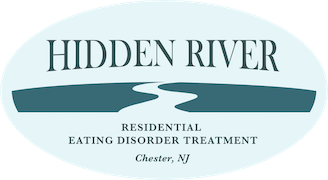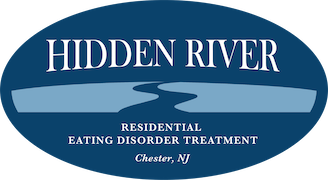How to Support Your Child as They Recover From Their Eating Disorder
Eating disorder recovery is not a straight line. It’s a curvy road with hills, bridges, and – oftentimes – detours. When your child is on their recovery path, it’s important to support them in genuine, healthy ways so they keep their eye on the destination, no matter where their journey takes them.
It can be confusing for parents or caretakers to know how best to support their child as they go through treatment, especially when they don’t want to say or do the “wrong” thing. In the end, it’s most important that you’re simply there for them.
For today’s blog post, we want to share five ways to support your child as they recover from their eating disorder.
1. Learn along with them.
Psychoeducation – that is, learning about mental health topics including eating disorders – is a great way to show that you’re right there with them during their recovery. Psychoeducation doesn’t have to look like attending seminars or spending hours studying public health materials. Instead, it can be reading blog posts together (like this one!), sharing YouTube videos, or talking about the latest episode of an evidence-based podcast on the topic.
When you’re learning about eating disorders and eating disorder treatment with your child, you’re showing them that you’re curious about what’s happening in their lives. It can also be an opportunity to show that you aren’t judging them for what’s going on. Plus, it gives you a strong foundation to ask open-ended questions from a space of exploration rather than telling them what to do. In fact, a 2013 study found that psychoeducation is a great addition to psychotherapy (1), which can be true both for children facing eating disorders and their parents.
2. Communicate in healthy ways.
Healthy communication is important for all relationships, especially the parent-child relationship. It’s even more important when the child is facing a significant mental health challenge like an eating disorder. Communicating with empathy is essential for recovery. It shows that you’re willing to take on their emotions as a way to try to understand what they’re going through. This effort could include using validating phrases like, “That must be really difficult” and affirmations like, “You’re showing so much strength right now.”
Another way to maintain healthy communication is to demonstrate that you have what’s called unconditional positive regard for your child. This psychological concept means that, no matter what, you believe that your child is a good person with good intentions. This approach is effective because a parent’s unconditional positive regard contradicts their child’s conditional self-regard, which is generally negative. By creating dissonance, the parent gives the child a new perspective — one that says that they’re trying their hardest and doing a good job despite the circumstances (2).
3. Send them a slice of home.
If your child is away at a residential eating disorder treatment program (like the treatment offered at Hidden River), sending them reminders of home can help them feel less homesick. You might want to send a framed photograph of the family or a card from their siblings or their classmates. While recovery is a long-term process, being away from home for treatment is often a short-term situation. By sending them items from home, they can feel excited about their return once they’re ready for the next phase of their recovery journey.
4. Get them out of the house and into nature.
Another great way to support your child as they go through eating disorder recovery is to take a break from everyday routines and go explore somewhere green. Getting into nature provides a huge boost to mental health, as explored in a 2016 study on the impacts of nature therapy (3). You can kick around a soccer ball in the middle of a big grassy field, take a hike through a nearby forest, or take a swim in a lake. There are a lot of benefits in keeping your child’s routine, but taking them into nature and engaging with the outside world can also go a long way in instilling a sense of peace and calm into their day.
At Hidden River, we see the positive impact of fresh air and sunshine with our own patients. We often incorporate nature into our treatment plans. There are green areas with comfortable benches overlooking fields and tree lines. Learn more about our beautiful grounds and outdoor amenities here and here.
5. Be a good role model.
In an effort to be a source of positivity for your child, consider how you act and what you say around your family. Think about how you talk about food or eating, which might have serious impacts on your child as they’re in recovery. Whether you avoid talking about food or eating altogether or avoid making any negative comments, the change in your behavior can be highly beneficial. You might also show your child that there’s nothing to fear when it comes to exercise, showing them by example that exercise in moderation can feel good for both the mind and the body.
Children tend to be very perceptive to what’s happening in their immediate environments, so it’s important for the adults in their lives to be good role models and demonstrate healthy habits. You never know what your child will pick up from you!
Hidden River can guide you as you support your child as they recover from their eating disorder.
Reach out for a consultation today to see if our services might be right for your family.
Visit our website to learn more about eating disorder treatment at Hidden River. For a closer look at our grounds and living quarters, take a look at our gallery.
References
- Tursi et. al. (2013). Effectiveness of psychoeducation for depression: A systematic review. Australian & New Zealand Journal of Psychiatry, 47(11).
- Frankel et. al. (2012). How nondirective therapy directs: The power of empathy in the context of unconditional positive regard. Person-Centered & Experiential Psychotherapies, 11(3).
- Song et. al. (2016) Physiological Effects of Nature Therapy: A Review of the Research in Japan. International Journal of Environmental Research and Public Health, 13(8).






Leave a Reply
You must be logged in to post a comment.